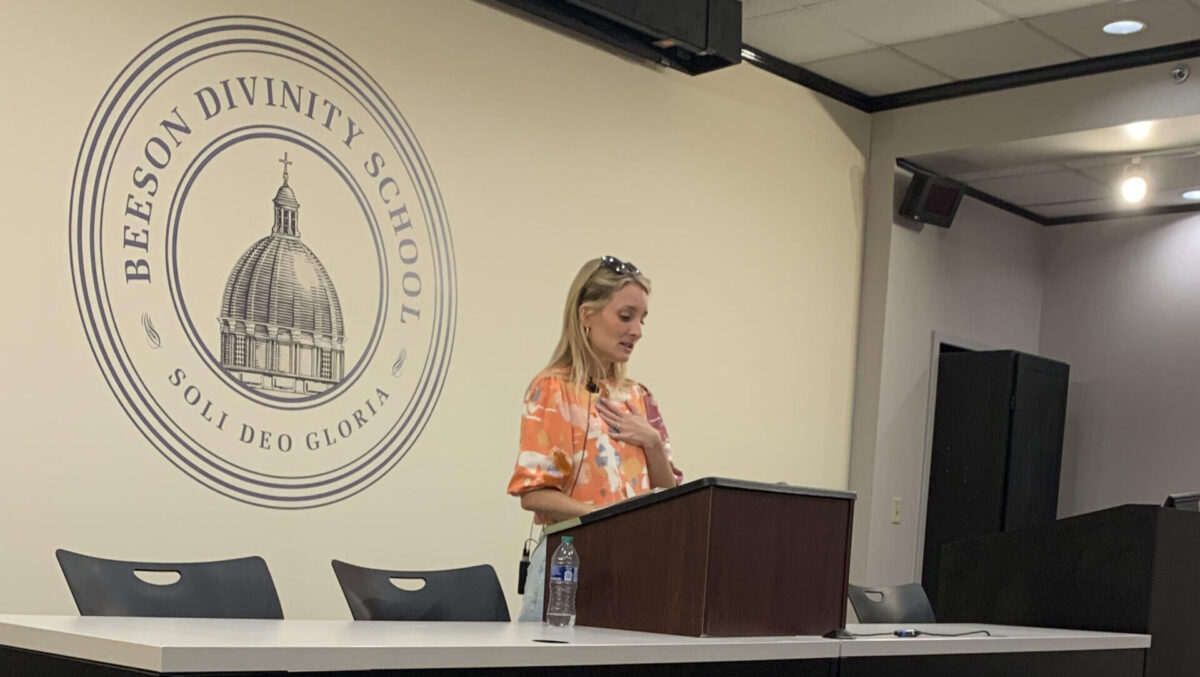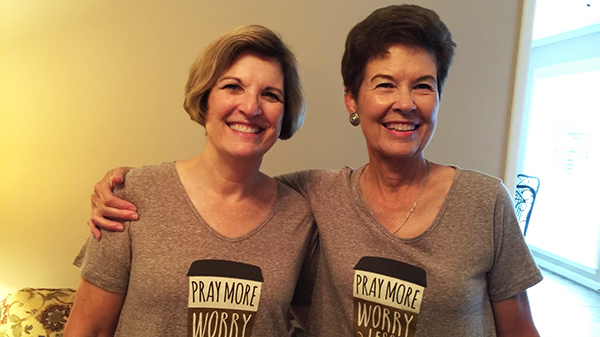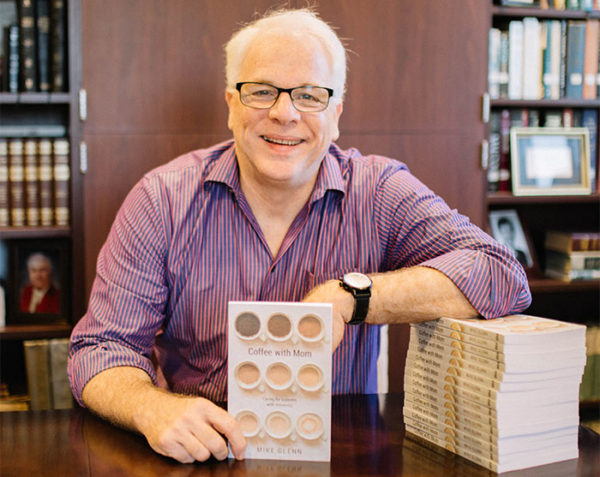Grief is a universal part of the human experience. Those in ministry face it in multiple ways, ministering to the grieving throughout their careers and at times serving while suffering themselves. On Oct. 10, Samford University held “Ministering To and Through Grief,” an event intended to equip women in ministry to face these difficult situations.
After connecting over coffee and desserts, community members and students gathered in Samford’s Divinity Hall to hear from Hayden Walker, a master of divinity graduate from Beeson Divinity School.
As a seminary student, Walker never envisioned speaking on the topic of grief because she did not yet know the story God had laid before her.
“Part of the grace of God is that we don’t know our own stories, right?” said Walker. “Because if we did, in some capacity we might not want to live them.”
‘Holy privilege’
While serving in full-time student ministry — and after losing her first baby to miscarriage — Walker became pregnant again in 2015. At a routine second-trimester ultrasound, she learned that her unborn baby girl had a fatal genetic condition and would not live. Her daughter would die at birth.
“I had three months of carrying Zoe and still working at church as a staff minister while going through phenomenal, incalculable grief of my own and still having to — and wanting to — meet people where they were in their own stories and their own pain.”
The church rushed to support Walker upon news of her baby’s diagnosis, surrounding her with love and stepping up to help with her ministerial responsibilities. She said she had always known that caring for those who are hurting and grieving was important, but being the recipient of that care gave her an entirely different perspective.
“I got to see the Church be the Church really well,” she said.
Walker noted that being in ministry often means being the first line of Christ’s presence in someone’s life when they face a difficult situation.
“If there’s a tragedy or somebody’s sick in the hospital, you may be there before the family is,” she said. “Entering those sacred spaces before others is a holy privilege.”
Walker spoke of stepping into those places with prayer and humility.
Presence
Grief can cause what Walker called the double-isolation factor. First, as the griever, you can feel all alone, like there’s a wall separating you from anyone who hasn’t experienced the same grief and second, people are scared of people in pain so they tend to stay away.
Referencing John 11, Walker explained that being like Jesus means being willing to step into those hard places in order to let someone know that you are there for them and that you care. Walker said the important thing is just being present, not trying to say “the right thing” or even saying anything at all. She said that if you spend enough time around someone with fresh pain triggers, you will say the wrong thing at some point — and that’s OK. Just continue to seek the Holy Spirit’s guidance as you offer your sincere empathy and care.
Walker said that when people are hurting, they say and do things that might come across as offensive, and it’s important not to take this personally. A family who lost their daughter several years ago expressed it this way: “We may not be very likable in our grief, but it’s only because we liked her so very much.” People who are grieving need extra grace as they navigate their pain.
Check-ins
When someone has lost a loved one, Walker suggests marking your calendar with the date of their loved one’s death and making a point to check in regularly, such as at one, three, six and 12 months. Just a text or call to let the person know you’re thinking about them on these anniversaries can mean a lot.
Some people may think, “Well, I don’t want to bring it up. I don’t want to remind them.”
But Walker said you are not reminding them of anything. They are already thinking about their loved one. “When you say their loved one’s name, you’re restoring dignity upon their grief and reminding them, ‘You are not alone.’”
While it is meant well, saying, “Let me know if you need anything” is not especially helpful to a grieving person. Instead, offering to meet a specific need like bringing a meal, running an errand or taking a responsibility off of someone’s plate can make a difference. Walker recalls specific ways people helped her, like showing up on her porch with a bag of groceries, bringing cathartic coloring books and dropping off paper products when she felt too overwhelmed to even wash dishes from meals that had been provided. If the grieving person is up to making a list of things that would help them, you can distribute the tasks to others who want to assist.
Keep showing up
After the initial shock of a tragedy passes, support can sometimes trickle away as those less directly affected return to their normal lives. Walker remembers looking out of her window weeks after losing Zoe, in complete disbelief that the world around her was still moving when, for her, time stood still. Those who are grieving live in a spiral of emotions that continually shifts.
“C.S. Lewis says in ‘A Grief Observed’ that even on his own grief journey, he would enter places that looked familiar, except that they were entirely new,” Walker said. Just remember that for the person you are ministering to, life has not gone back to normal and will never be the same. Keep showing that you care and that you’re there for them as time passes.
A word for those in ministry
Walker said she never thought about grief until she was drowning in it. She suggests making an advance plan of what to do if you need to step out of your role for a season. Equip those around you at every stage of ministry.
“There is power in a list!” she said.
She encouraged those who find themselves suffering while serving to take space to grieve well, whatever that looks like.
“The only wrong way to grieve is not to grieve at all.”
Grieving in ministry can feel like grieving in a fishbowl, like you’re being observed at every stage. Everyone feels like they know you and wants to show concern, which is a wonderful thing. But Walker said to remember that it’s okay to keep a tight inner circle.
“Jesus had Peter, James and John,” she said. Instead of opening your front door 20 times on the day of your loved one’s funeral, you can have a close friend accept condolences on your behalf.
“You don’t have to have a forward-facing ministry when you’re in acute pain,” she said. Walker also stressed how crucial it was for her to meet regularly with a counselor and join a support group during the first year after Zoe’s death.
God can use it all
Unfortunately, no one is exempt from pain in this lifetime, but we can cling to the words of hope found in Isaiah 43: “When you pass through the waters, I will be with you, and when you pass through the rivers, they will not sweep over you” (Isa. 43:2).
In time, and by God’s grace alone, we can find purpose in our pain.
“We all have stories of suffering in our lives, and God can use it all for His glory,” Walker said. “He can use it to connect you with other people to be effective ministers of the gospel.”
Read more:






Share with others: